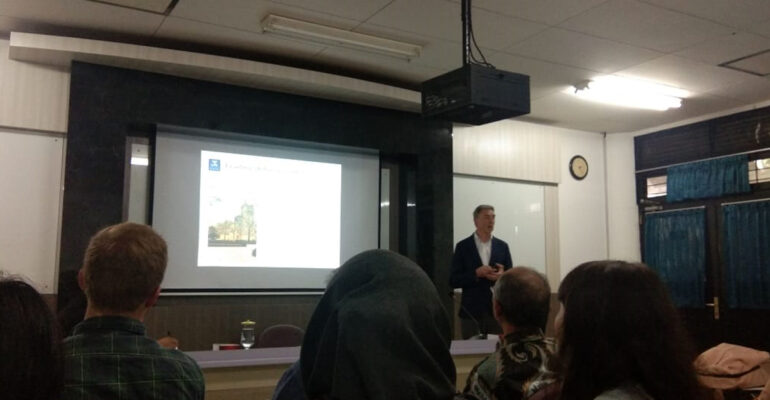A Professor from the University of Melbourne Explains Arbovirus at IPB University

Diseases spread by mosquitoes are still a hot topic in Indonesia. This was what raised by Prof. John Fazakerley during the 34th IPB Talks event. In collaboration with the Faculty of Veterinary Medicine (FKH) of IPB University, Prof. John gave a general lecture on arbovirus in FKH Clinical Classroom, IPB Dramaga Campus, Bogor (21/8).
Arbovirus is a term for viruses carried by arthropods. The well-known group of arthropods by the public is mosquitoes. It has become a general discussion that mosquitoes such as Aedes aegypti carry viruses that can cause disease, one of which is dengue fever. The question is how this virus can enter the human body and be present in the body of a mosquito.
A virus has very short cycles. Mosquitoes that carry viruses will suck human blood. In this process, mosquito saliva will deliver the virus into the human body. The virus will be propagated in the human body and cause infections in the body.
“All this time people think that infection causes cells in the body to die. But in fact, when a virus enters and infects cells, the brain will send signals to cells to self-destruct,” said Prof. John.
There are many types of diseases caused by arbovirus, but the most common in Indonesia are dengue and chikungunya. Although various studies said that the symptoms that arise are not very visible and tend to be mild, but infections due to this virus cannot be underestimated.
Prof. John has spent much of his time in research on arbovirus and its relation to encephalitis or brain disease. Prof. John serves as dean at the Faculty of Veterinary and Agricultural Sciences of the University of Melbourne, Australia. He came to Indonesia for the first time and cooperated with FKH of IPB University. (adinda/zul/zsp)


